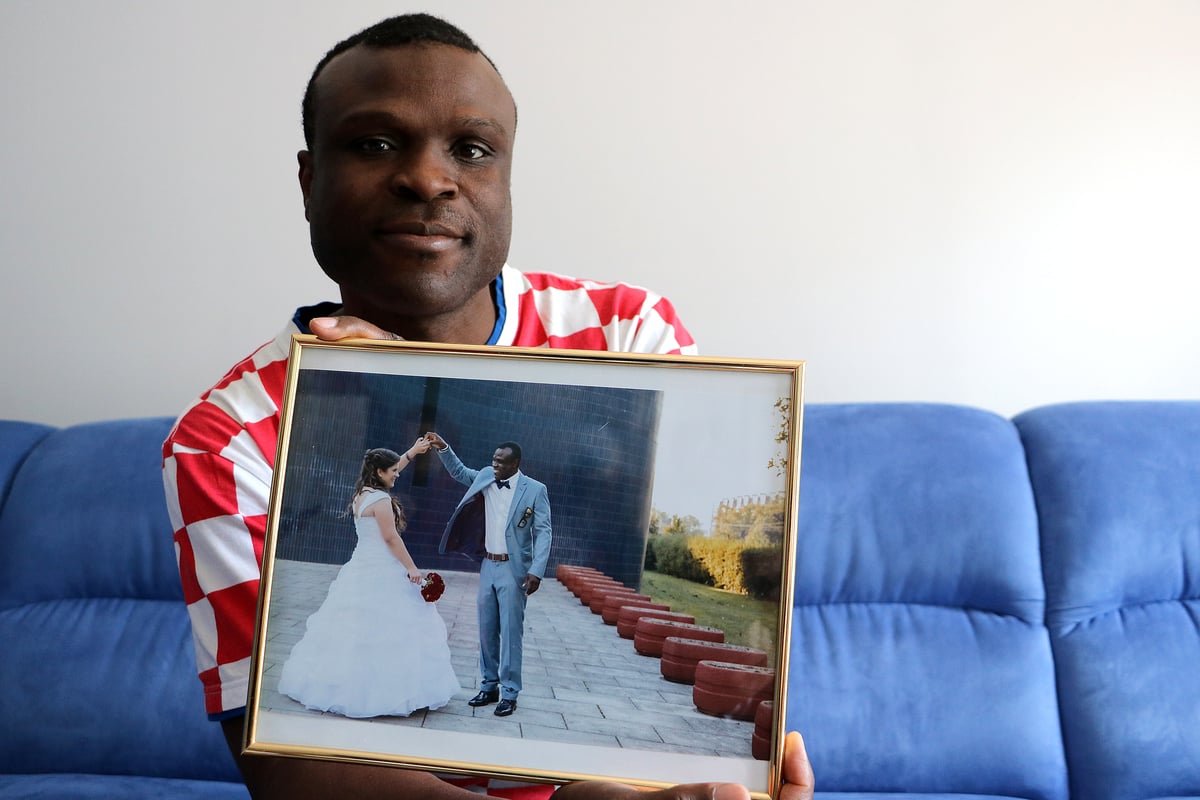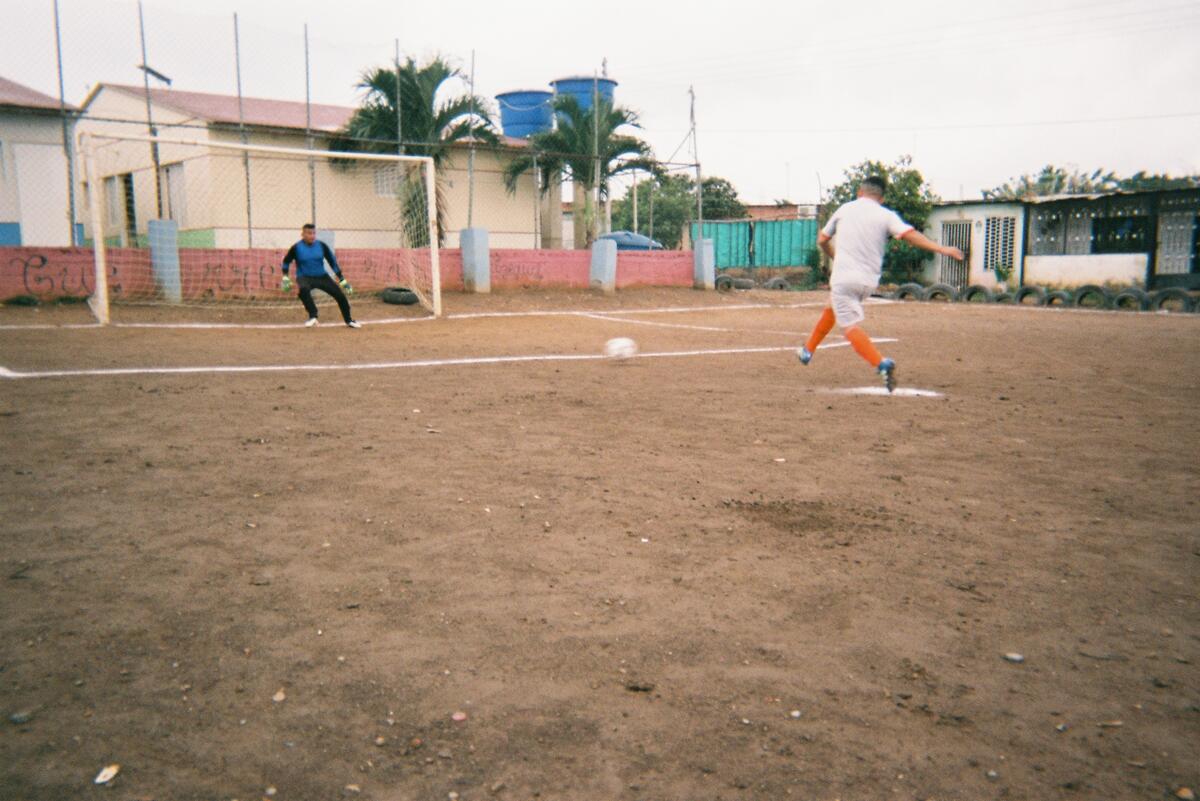Nigerian footballer scores success as a coach in Croatia

Nigerian footballer scores success as a coach in Croatia
Football was Celestine Olisa’s life as he was growing up in Nigeria, where his skill at the game earned him the nickname “Boban” after his hero, the Croatian captain Zvonimir Boban. He was good enough to turn professional in his late teens and now, after surviving the journey to Europe as a refugee, he is coaching the next generation in his adopted homeland of Croatia.
Celestine, 35, was born in Enugu in the Biafra region and later lived with his stepmother and family in Sabon Gari in Kano state. They had a spare parts and car wash business.
All he wanted to do was play football. “I would tell my parents I was going to church, but actually I’d be going to play football,” he says.
Celestine collected pictures of Boban, who played for AC Milan and led Croatia to third place in the World Cup in France in 1998.
"We didn’t have a TV at our house, so we went to the neighbours’ to watch."
“As a kid, you look up to someone,” says Celestine. “Boban was an aggressive midfielder. I liked his style.”
When it came to the World Cup, Celestine supported Croatia.
"We didn’t have a TV at our house, so we went to the neighbours’ to watch," he says. "It was a black and white TV. If the house was full, we would stand outside, watching through the window.”
Celestine reminisces about provincial Nigeria from the apartment he now shares with his Croatian wife Anamarija, 27, a lawyer. They married last year. “It was more than a romance,” he says. “She was the one who was giving me courage.”
Courage was what he needed on the difficult journey he was to make before his new life began in Croatia.

Celestine had been a promising junior player for the Nigerian Premier League side Kano Pillars FC and, in 2004, won a competition that led to a signing with Jedinstvo Bijelo Polje FC in Montenegro for two years.
“I was twenty-two,” he says. “I saw Europe for the first time. Lots of things were different from Africa. I was lonely. At that time, I thought I would have a better life in Nigeria and I returned home. But I started to regret it. The religious problem in Nigeria was getting worse. I had seen that life was safe in Europe. Why had I come back?”
"Lots of things were different from Africa. I was lonely."
Celestine himself was injured when an unknown attacker stabbed him in the stomach, putting him in hospital.
In 2011, he left Nigeria for the second time. “Now I was a refugee. I went with smugglers, through Libya and across the Mediterranean. There are things I don’t want to talk about, that’s the simple truth. It was a journey that no-one would want to remember.”

Celestine was stopped in Slovenia, where the authorities decided to send him to Croatia.
“I was in an open camp in Slovenia,” he says. “We got a warning that the police were coming. Other refugees ran away because they did not want to be sent to Croatia but I packed my case and waited."
“I thought to myself, ‘I don’t want to run away any more, I’ve had enough.’ I had a good feeling about Croatia. Croatia is football. The police said it was the first time someone was sitting waiting for them, ready.”
At Porin reception centre, Celestine started encouraging fellow refugees to play football and the Red Cross provided them with a proper field in the neighbourhood.
“In football, we didn’t feel that we were asylum-seekers but just players, playing sports naturally, like everyone else.”
“In football, we didn’t feel that we were asylum-seekers but just players."
Celestine went on to coach Croatian children at NK Utrina and adults at NK Zagreb 041, an amateur club run by fans which campaigns against violence and racism in football. While holding down a second job as a barman, Celestine is also attending coaching school with the aim of becoming a certified trainer of the Croatian Football Association.
He was granted asylum, and met and married the woman he loved. “I told Anamarija I would do everything in Croatian style. We had a Catholic wedding and 70 guests. Unfortunately, I couldn’t invite anyone from Africa.”
On a weekday evening, Celestine is coaching the children again at NK Utrina. “This club is my home,” he says. “I know all the parents here. They gave me a life when I was nobody. I feel confident here.”
He points to a boy dribbling a ball in the field.
“That boy is very keen. He could have a future. He could be the next star for Croatia.”








